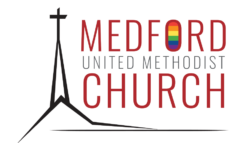
8 Don’t be in debt to anyone, except for the obligation to love each other. Whoever loves another person has fulfilled the Law. 9 The commandments, Don’t commit adultery, don’t murder, don’t steal, don’t desire what others have,[a] and any other commandments, are all summed up in one word: You must love your neighbor as yourself.[b] 10 Love doesn’t do anything wrong to a neighbor; therefore, love is what fulfills the Law.
Reflection
This week I have chosen to use the Common Lectionary to lead us into exploring some passages from Romans. It is thought by most current scholars that the Letter of Paul to the Romans is the last letter from Paul contained in the Bible. It likely contains over 20 years of teaching, preaching and letters written to the Thessalonian, Philippian, Corinthian, and Galatian churches. As a faithful Jew, Paul would have been well acquainted with the Torah and the laws contained within it. And then he had a personal encounter with the Risen Christ, which led him into the verses we read today. His theological understanding of everything had been evolving and maturing throughout his life, as it does with every child of God. I resonate with his journey of faith as I reflect on my own journey through ministry.
Prior to exploring my call to ministry, in 1982 I went on a two-week journey to Northern Ireland with a small group of fellow pilgrims, clergy and laity. Guided by a former President of the Methodist Church in Ireland, we were seeking to understand the concept of Reconciliation during “The Troubles” i.e. Protestants and Catholics at war for generations. According to the Britannica Dictionary, Reconciliation in simple terms is “the act of causing two people or groups to become friendly again after a disagreement.” In Biblical terms it is the process of two previously alienated parties coming to peace with each other, ultimately leading to a restoration of the relationship between God and humankind. I returned knowing that I needed to do something to guide young people into a new way of living together in peace. What I observed in Northern Ireland was two extremely different ways of teaching children: how to live with others peacefully vs how to continue fighting with one another.
The concept of “Reconciliation” gave me a new way of looking at the world. I committed to teach people to love others as God loves each of us. It is work that continues to be sorely needed within our world that seems to be divided in so many ways. It has been a journey of love; an unfinished journey, until God’s kin-dom comes.
by Kathleen Stolz
For Pondering and Prayer
We live in a world of choices. We generally look at those choices as “Either/Or” rather than “Both/And.” After all, you can’t have your cake and eat it too, can you? Or CAN you? It is important to learn how to make choices and decisions in ways that benefit all rather than only a select few. As we ponder this concept what are some of the ways it can benefit your
own life choices? Are there ways you can see Reconciliation work on a community scale or even a global scale?
Prayer: Reconciling One, we give you thanks for opening our eyes to new ways of living together peacefully in the world you have given us. Help us to consider the needs of others when making decisions rather than only what we want. Remind us always to love one another as you love us. Amen.



